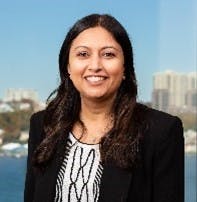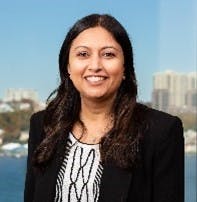Faith & Finance
6 min read

The Sustainable Balanced Fund: Contributing Toward a More Sustainable World

by Minoti Dhanaraj
Director of Responsible Investing, PBUCC
As you contribute to your retirement through the United Church of Christ Lifetime Retirement Income Plan, you are choosing investments that align with your UCC values to create a just world for all by helping drive the transition to a greener economy. Investments in the Sustainable Balanced Fund can have a powerful impact on both your financial future and the planet. The Fund directs investments toward companies and projects that prioritize renewable energy, reduce carbon emissions, and promote ethical business practices.
Integrating Your UCC Values for Our World
In the previous article, “What is Responsible Investing at the Pension Boards,” we shared information on how the Pension Boards has managed retirement assets on your behalf, with a goal of providing competitive returns while promoting long-term sustainability through positive climate and societal impact and reducing risks associated with poor corporate behavior.
The Pension Boards has 11 curated fund options available to you during your phase of active employment, all of which aim to provide good returns while caring for our environment and are diversified with top investment managers. One of these options is the Sustainable Balanced Fund.
What is the Sustainable Balanced Fund?
Similar to traditional balanced funds, the Sustainable Balanced Fund invests across stocks and bonds. Under normal conditions, between 40% and 70% of the Fund’s assets will be invested in stocks, and 30% to 60% will be invested in bonds. The Sustainable Balanced Fund is unique in that it incorporates criteria that assess the Fund’s societal or environmental impact. The Fund screens non-sustainable companies in industries such as tobacco, coal and tar sands, and firearms, but also seeks to incorporate managers that proactively invest in companies that are leaders in sustainability-related efforts.
How is this implemented?
The Sustainable Balanced Fund invests across the public markets in both passive and active strategies that invest in companies that are both leaders in sustainability and solution providers. The equity portion currently has three managers: Baillie Gifford Positive Change, Lombard Odier Climate Transition, and Northern World Selection Index Fund.
- The Baillie Gifford Positive Change strategy focuses on providing attractive returns and positive change through four impact themes: social inclusion and education, environment and resource needs, healthcare and quality of life, and the base of the pyramid.
- The Lombard Odier Climate Transition strategy focuses on the mitigation of carbon usage and adaptation to a carbon-damaged world.
- The Northern World Selection Index Fund (previously Northern Trust Global Sustainability Index Fund) replicates the MSCI World Selection Fund, which selects companies that are rated in the top 50% of ESG factors within the MSCI World Index. The fixed-income portfolio is managed by the Pension Boards Core Fixed-Income team, focused on green and social bonds to finance projects with positive environmental and social impacts.
Performance Objectives and Risks
The Sustainable Balanced Fund invests in exceptional companies and fixed-income securities, with a two-fold objective:
1) to deliver attractive long-term returns (+2% per year versus a benchmark of the MSCI All Country World Index (MSCI-ACWI), a stock index designed to track broad global equity-market performance; and the U.S. Barclays Government/Credit Index, a bond index designed to track U.S fixed-income securities); and
2) to deliver a positive change by contributing toward a more sustainable and inclusive world.
Some potential risks to consider include a reduced investable universe, challenges in measuring impact, and ESG data availability and reliability.
The performance of the Fund is measured against a benchmark consisting of a 55% of the MSCI World Index return and a 45% of the Barclays Capital Government/Credit Index return.
Pension Boards’ members who are interested in investing with their values in mind can consider the Sustainable Balanced Fund as an option in their retirement portfolio. We are interested in your financial wellbeing, and remain committed to the disciplined and sophisticated management of your retirement assets to ensure the best outcome for your retirement goals.
Investments with Your Values in Mind
The Pension Boards’ Investment Program aims to provide the highest level of investment performance within the guidelines of the organization and invests assets on behalf of its members for positive impact. We emphasize and support our shared United Church of Christ values such as sacredness of creation, human rights, and underserved and underrepresented populations

by Minoti Dhanaraj
Minoti Dhanaraj is the Director, Responsible Investments for The Pension Boards-United Church of Christ, Inc. She joined the Investment team at the Pension Boards in 2018. Minoti has over 15 years of experience in the financial services industry, most recently as a Senior Investment Officer at The Employees’ Retirement Fund of the City of Dallas and a Research Analyst at Neuberger Berman. Minoti received her BBA in Finance from the University of Texas at Austin and an MBA from the University of Chicago.
We all agree on the mission—invest the assets held in trust for retirement wisely and prudently, while maximizing the positive impact on climate change, human rights and providing capital to empower those challenged by a lack of economic success.David A. Klassen
Chief Investment Officer at the Pension Boards
RELATED ARTICLES
What is Sustainable Investing?
Green Bonds: One Way to Mitigate Climate Change
POPULAR RESOURCES
Why Sustainability Matters: 2024-25 Sustainability Report
The Pension Boards' 2024-25 Sustainability Report, themed "Why Sustainability Matters," centralizes on the organizations' commitment to corporate social responsibility and responsible investing by way of its journey and recent advancements in four areas: alignment; integration; impact; and engagement.
Generations: A Journal of Faith and Finance - Cultivating Resilience and Self-Care in a Multi-Vocational World
Cultivating Resilience and Self-Care in a Multi-Vocational World